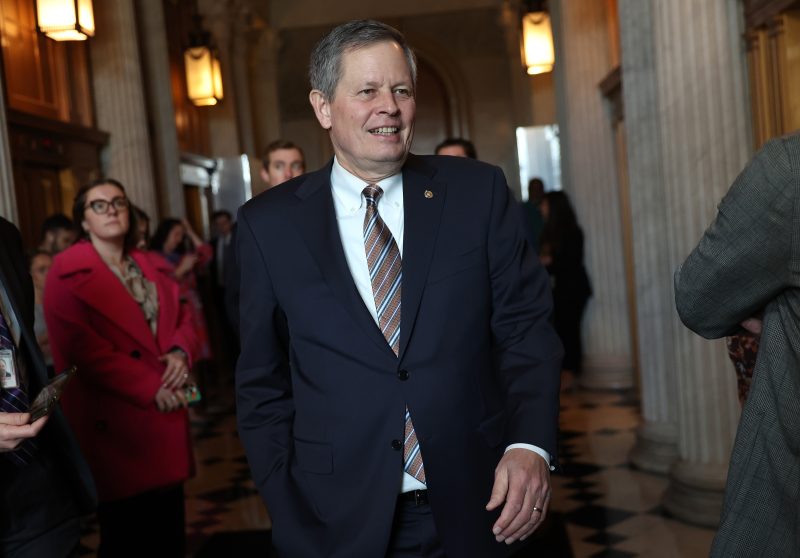
Trump, Republican Senate candidates express support for in vitro fertilization

Former president Donald Trump and Republican candidates in key Senate races voiced support for in vitro fertilization treatment Friday, distancing themselves from a recent Alabama Supreme Court ruling that has again highlighted the electoral challenge Republicans face over their stances on abortion and other reproductive rights.
“Under my leadership, the Republican Party will always support the creation of strong, thriving, healthy American families. We want to make it easier for mothers and fathers to have babies, not harder! That includes supporting the availability of fertility treatments like IVF in every State in America,” Trump wrote on Truth Social. “Like the OVERWHELMING MAJORITY of Americans, including the VAST MAJORITY of Republicans, Conservatives, Christians, and Pro-Life Americans, I strongly support the availability of IVF for couples who are trying to have a precious baby.”
Alabama’s court decision ruled that frozen embryos should be considered children and that people can be held liable for destroying them. In his social media post, Trump subsequently called on the Alabama state legislature “to act quickly to find an immediate solution to preserve the availability of IVF in Alabama.”
Most of the expressions of support for IVF came after the National Republican Senatorial Committee, the national group tasked with electing Republicans to the Senate, urged its candidates on the ballot this year to support in vitro fertilization and reject government restrictions, citing its popularity.
The shift underscored the precarious line GOP candidates are walking when it comes to discussing reproductive rights following the U.S. Supreme Court’s ruling nearly two years ago that declared a constitutional right to abortion no longer exists.
Since the high court’s decision in 2022, Republicans across the board have struggled to find a winning strategy to address reproductive rights — particularly with abortion. Last November, abortion rights played a role in a string of Republican losses across the country and voters have rejected every opportunity to limit abortion care in several referendums — including in red states. Some Republicans in Congress, meanwhile, have continued to push for a federal abortion ban.
Initially, last Friday’s ruling from Alabama was largely met with silence from Republican officeholders and candidates. But more GOP politicians at all levels have since sought to distance themselves from it and embrace IVF procedures, which have been utilized in soaring numbers by families of all political affiliations in the United States over the past decade.
Much of the Republican Party for years has embraced the argument that life begins at conception, making that a cornerstone of their opposition to abortion. But the decision in Alabama injected an urgency to the debate that had been otherwise on the back burner.
The messaging from the NRSC, contained in a memo obtained by The Washington Post, was accompanied by announcements from a rapidly growing number of GOP Senate candidates voicing support for IVF procedures, which the Alabama ruling threatens.
“When responding to the Alabama Supreme Court ruling, it is imperative that our candidates align with the public’s overwhelming support for IVF and fertility treatments,” NRSC Executive Director Jason Thielman wrote in a memo to “Senate Candidates” dated Friday.
Thielman described the Alabama ruling as “fodder for Democrats hoping to manipulate the abortion issue for electoral gain” and said that “[t]here are zero Republican Senate candidates who support efforts to restrict access to fertility treatments.”
“NRSC encourages Republican Senate candidates to clearly and concisely reject efforts by the government to restrict IVF,” he wrote.
The NRSC memo cited polling that appears to have been conducted by the firm of former Trump White House adviser Kellyanne Conway that claimed that access to IVF is overwhelmingly popular.
On Friday, Republican Senate candidates Bernie Moreno and Matt Dolan in Ohio, Tim Sheehy in Montana, Dave McCormick in Pennsylvania and Kari Lake in Arizona were among those who posted messages on social media that said they support IVF.
Until Friday, former president Donald Trump had been silent on the Alabama ruling. His remaining rival for the GOP presidential nomination, former U.N. ambassador Nikki Haley, has sent mixed signals. Haley initially said that she personally agreed that “embryos, to me, are babies” but has since emphasized that families and doctors should be in charge of their fertility decisions.”
The NRSC memo did not explicitly dictate how candidates should discuss personhood and embryos — an issue at the heart of the Alabama case.
“Clearly state your support for IVF and fertility-related services as blessings for those seeking to have children,” the NRSC memo said. “Highlight the importance of these treatments in fulfilling the dreams of countless families to conceive.”
Candidates should “publicly oppose any efforts to restrict access to IVF and other fertility treatments, framing such opposition as a defense of family values and individual freedom.”
